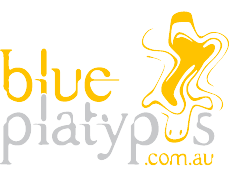[vc_row][vc_column][vc_column_text css=”.vc_custom_1616982909796{margin-bottom: 0px !important;}”]OK, so you have no budget at all for SEO… and you have worked out that Google is a competitive place. Don’t panic because you can still SEO your own website in 2021.
This is a re-write of an article I first wrote in 2012… eons ago in terms of web technology, but surprisingly, some of the basic premises remain today. How can that be? Read on.
Those of you who know me personally, know that whenever possible, I like to offer small businesses (especially start-ups) real value and the opport unity to make your own website a success for no cost to you. So I am writing this article in response to all the business owners out there who are committed to learning how to rank well in Google.
unity to make your own website a success for no cost to you. So I am writing this article in response to all the business owners out there who are committed to learning how to rank well in Google.
To make a success of this, you will need these three things:
- A WordPress website
Ideally WordPress so you can post regular blog posts to attract the search engines. We recommend WordPress because many of the builder platforms like WIX and SquareSpace can be a lot harder to rank, but by all means, give it a go. - Time
There are no magic bullets here. It takes time to learn SEO. It takes time to make regular, gradual changes and for Google to pick up on the changes too. Expect to be working on your SEO every month ongoing. Results might take 3 months of regular work or 6 months. It is a slow burn. - Willingness to read widely and learn
Like I just said, there is no magic bullet when it comes to SEO, so don’t think that “one thing” that you have been told will rocket you up the search results.
Learning SEO
Firstly a few words on learning how to SEO your website for Free…
The good news is that SEO isn’t rocket science or voodoo. Many of the tasks of SEO are not technically difficult. (Some are a bit techy but you can always get help with those.) The fundamentals of SEO are not too difficult for you to learn.
However, the first fact for you to accept is that there are many factors that help rank your website, not just one… regardless of what your Uber driver/best friend/brother-in-law tells you. So accept that fact that SEO isn’t about a magic bullet. For example, if you just change your domain name, you probably will not rank number one. If you simply register 200 domain names you won’t rank number one. If you start a blog you might not rank number one. If you buy software from an SEO “guru”, you might not rank number one. If you buy links on Fiverr, there is a high chance that won’t work. There isn’t any ONE thing that you can do that will make you number one. There are many, many factors that help your website ranking and it is ongoing work. The point is, accept the fact that there are many factors and it can take time.
So let’s dive in! Of course in one blog post, it isn’t realistic to learn everything there is to know about SEO. However, there are a few high level factors that we find have the greatest influence on search results. These steps will help you better optimise your site to improve your search rankings (remember to track where you start, and watch for changes over time.)
3 Steps to DIY SEO
At the risk of oversimplifying an entire industry of SEOs, here are three of the most useful and simple SEO tips that I know…
1. Keyword Research
Keyword research will make sure your time (on the next two steps) is well spent. Think about your target audience and what their needs are. Then try to step into their shoes and try to think what they would be typing into a search engine to find the service or product that you offer. This will give you an insight into what keywords and key phrases you should be looking to optimise your site for.
You can see how much competition there is for those keywords when you do a search in Google – look for the number of results above the actual results/ads.
There are also free tools available to find out how many people use particular search terms (see below).
2. Update your site to provide good content for your customers
Improve and expand your onsite content by writing blogs or articles that use your keywords. We recommend you write a blog post weekly, but at the very least make it once a month at the same time. This is a key component of on-site SEO.
3. Become visible and credible to the Search Engines
Get links to your website. Look for free online directories, relevant forums and any other legitimate ways to get links to your site. Aim for links that are not “no follow” links. We call this off-site SEO.
Remember
If you want to SEO your site for free, you must
- be prepared to read widely
- be prepared to commit some time regularly to your SEO tasks
- be patient
- be prepared to start with one or two actions every week.
Getting SEO Help
Once you start reading and finding out new things about SEO, you might find you need help of an expert with some of the more technical aspects of on-site SEO. If you get stuck, please contact us. We can help you undertake some technical on-site improvements, or provide a quote for a complete SEO service.
Remember, if you only want to make just one change to your website to rank well, then make that one action to call an SEO expert. That is the only single action that I can think of that will really impact your rankings. Basically, you will be paying someone else to do the hard work… and that is absolutely fine if you are time poor and you have the budget.
The 2021 List of SEO Resources for Beginners
Below is my 2021 List of SEO Resources for Beginners. These are sites that are trustworthy and well researched…
Keyword Research
- Google Trends – https://trends.google.com
- Wordtracker – https://www.wordtracker.com/
- MOZ – https://moz.com/beginners-guide-to-seo/keyword-research
Onsite Content
Link Building
General SEO Resources
In general we find that these are reputable information sources:
- Moz Blog – https://moz.com/blog
- Search Engine Land – http://searchengineland.com/
- Google’s YouTube Channel for Webmasters – https://www.youtube.com/channel/UCWf2ZlNsCGDS89VBF_awNvA
About the Author
Based on the Gold Coast, Tanya started helping Gold Coast and Brisbane based businesses with SEO back in 2007. Today, her agency Blue Platypus Digital offers SEO services to businesses around Australia.[/vc_column_text][/vc_column][/vc_row]






